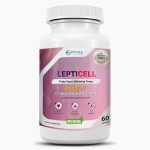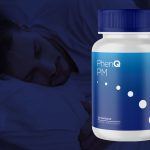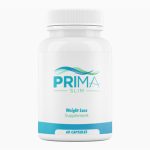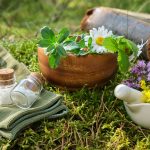Some home remedies are so bizarre that scientific research will probably never be done. Here are a few remedies that are supported by some scientific evidence and may be worth a try.
- Plants in the mint family have been used for centuries as antispasmodics, that is, to keep intestinal muscles from contracting. Peppermint oil, available in capsule form, helps relieve gas and bloating.
- A 1992 study found that eating a daily cup of yogurt containing Lactobacillus acidophilus substantially reduced the number of vaginal yeast infections. This was a small study, however, and the yogurt contained live cultures (not all yogurt does). A supplement, such as yogurt, containing L. acidophilus can also help ease the diarrhea that sometimes follows treatment with antibiotics.
- A 1993 Harvard study showed that drinking 10 ounces of cranberry juice daily helped prevent urinary tract infections (UTI). This should not be used to actually treat the infection but might be a useful adjunct to antibiotic therapy for the UTI.
- For extensive sunburn, scatter a cup of dry instant oatmeal in a tub of cool water and soak for a while. Colloidal oatmeal is available commercially (Aveeno) and can soothe irritated, itchy skin, notably from poison ivy.
- In 1993 a professor at the U. of Nebraska put chicken soup to the test for treating a cold. It won't affect the virus itself, which still has to simply run it's course, but the soup can make you feel better temporarily. That's about as much as any drugstore “cold remedy” can do! An even more recent study found that Zinc lozenges can shorten the course of cold by about three days. It's too early to believe these results, but, if proven to be true, then zinc would be our best treatment yet for the common cold.
- Gargling with warm salt water temporarily helps soothe a sore throat. Corn syrup also works well. Use ¼ teaspoon of salt (or 1-2 teaspoons of corn syrup) in 8 ounces of warm water.
- To prevent swimmers ear: mix equal parts of white vinegar and rubbing alcohol, and put 1-2 drops in each ear three times daily.
Vitamin C may also help our bodies fight infection. A dose of 500-1000 mg. Of Vit. C twice a day has shown slight benefit in combating the common cold. I personally do not recommend exceeding this dosage. - An herbal product derived from daisies, Echinacea, seems to slightly boost your bodies immune system when you take it while fighting an infection. It has not been shown to provide this effect longer than 3 days, however, so I don't recommend using it any longer than that.
Luckily, most diseases are self-limiting and resolve without any treatment at all if we simply take good care of ourselves. Our bodies have a very powerful self-healing mechanism so it's important to be sure that all of our therapies “Do No Harm”while the healing takes place.









